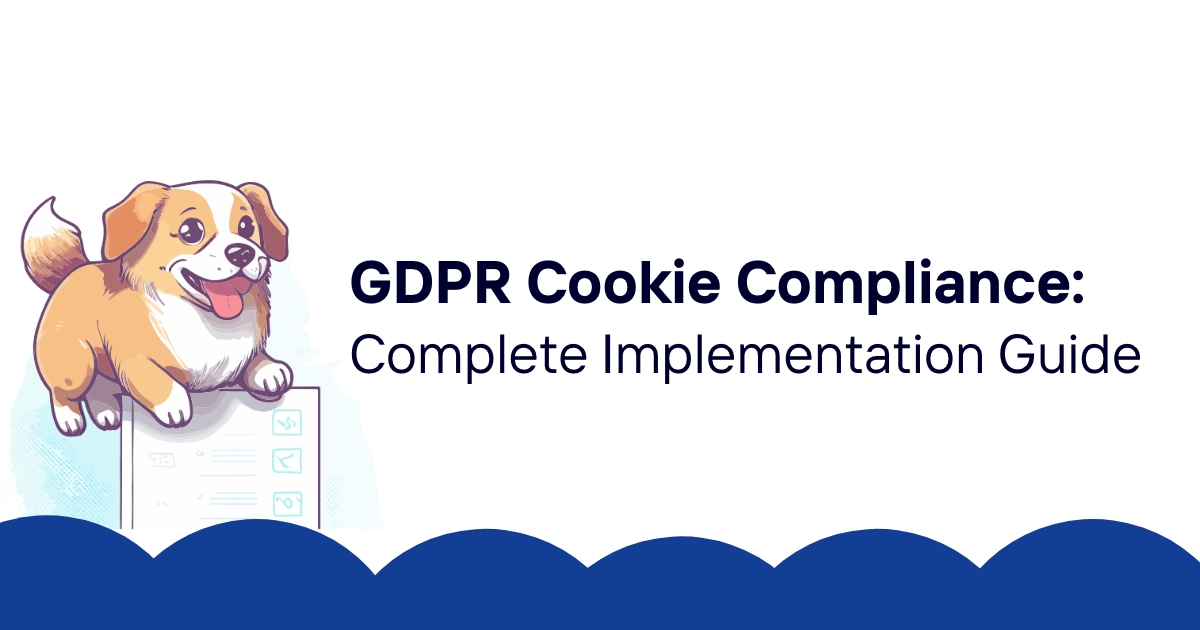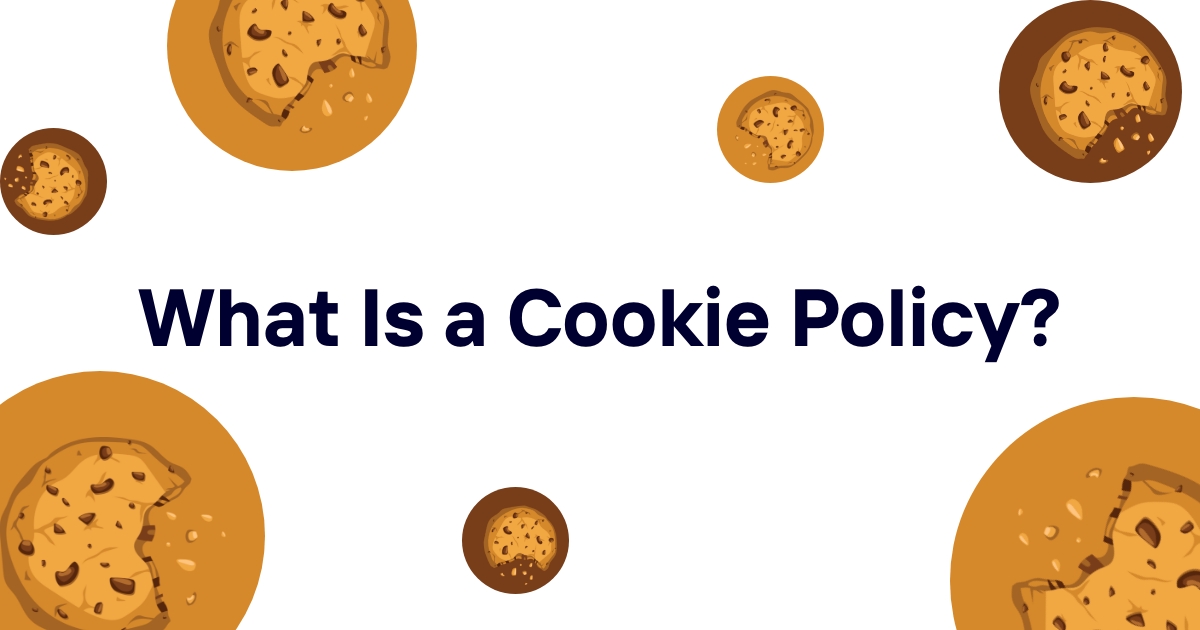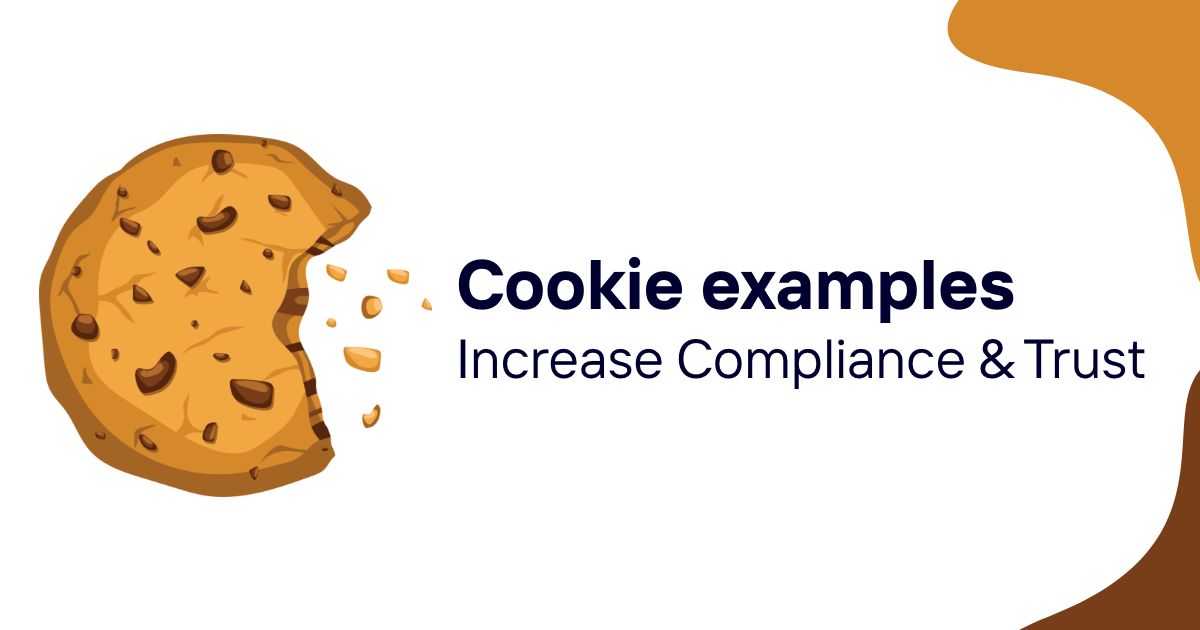Website cookies power modern digital experiences, but GDPR regulations have transformed how you must handle them. Are your cookie practices actually compliant? Many websites think they're covered but miss critical requirements.
Non-compliant cookie implementations face fines up to €20 million or 4% of annual revenue. The problem isn't just legal risk - poor cookie management damages user trust and can hurt your website performance.
This guide covers everything you need to implement GDPR-compliant cookie solutions that protect your business while maintaining great user experiences.
Cookie Policy Legal Requirements
GDPR Cookie Fundamentals
GDPR treats cookies as personal data when they identify or help identify individuals. This includes tracking cookies, analytics cookies, and many functional cookies that seemed harmless before 2018.
The regulation requires explicit consent for non-essential cookies before they're placed on user devices. Pre-checked boxes and implied consent no longer satisfy legal requirements.
Cookie policies must clearly explain what cookies you use, why you use them, and how long they remain active. Vague language like "cookies help improve user experience" doesn't meet transparency standards.
Consent Management Requirements
Valid consent must be freely given, specific, informed, and unambiguous. Users need clear options to accept or reject different cookie categories without being penalized.
Consent records must include what users agreed to, when they consented, and how consent was obtained. These records prove compliance during regulatory investigations.
Withdrawal of consent must be as easy as giving it. Users should find consent management options without hunting through complex menu systems.
GDPR Cookie Policy Standards
Essential Information Elements
Cookie policies must identify your organization and provide contact information for privacy questions. Include your Data Protection Officer details if you have one.
List each cookie type with specific purposes, data collected, and retention periods. Generic descriptions like "analytics cookies" don't provide sufficient detail for users.
Explain third-party cookies separately since users often don't realize external services place cookies on your website. Pinterest, Google Analytics, and social media widgets all create compliance obligations.
Policy Language Requirements
Write policies in clear, plain language that typical users understand. Legal jargon and technical terms confuse users and may invalidate consent.
Provide policies in languages your website visitors use. English-only policies don't satisfy requirements for websites serving German, French, or Spanish speakers.
Update policies whenever you add new cookies or change existing ones. Stale policies that don't reflect current practices create compliance gaps.
Cookie Categorization and Descriptions
Strictly Necessary Cookies
These cookies enable basic website functions like security, network management, and accessibility features. GDPR doesn't require consent for truly necessary cookies.
Examples include session cookies for shopping carts, authentication cookies for logged-in users, and load balancing cookies for website performance.
Be conservative when claiming cookies are "necessary." Convenience features like remembering language preferences usually require consent even though they improve user experience.
Analytics and Performance Cookies
Analytics cookies track how users interact with your website to improve performance and content. These always require consent under GDPR since they're not essential for basic functionality.
Google Analytics, Adobe Analytics, and similar services place tracking cookies that follow users across sessions. Explain what data these tools collect and how you use the insights.
Heat mapping tools like Hotjar or Crazy Egg also fall into this category. They record user behavior patterns that help optimize website design but aren't necessary for core functions.
Marketing and Advertising Cookies
Advertising cookies enable targeted marketing and track campaign effectiveness. These create detailed user profiles that clearly fall under GDPR personal data definitions.
Facebook Pixel, Google Ads, and retargeting platforms all place marketing cookies. Users must explicitly consent before these cookies activate.
Affiliate tracking cookies also require consent even though they don't directly target users. They still process personal data by connecting user actions to commission payments.
Functional and Preference Cookies
These cookies remember user choices like language settings, currency preferences, or customized layouts. While helpful, they're usually not essential for basic website operation.
Social media integration cookies fall into this category. Like buttons, share widgets, and embedded content from platforms like YouTube require user consent.
Chat widgets and customer support tools often place functional cookies. Even though they improve customer service, they're not strictly necessary for website operation.
Policy Update and Maintenance
Regular Policy Reviews
Review cookie policies quarterly to ensure they reflect current website functionality. New plugins, third-party integrations, and website features often introduce additional cookies.
Audit your actual cookie usage using browser developer tools or specialized scanning services. Policies must accurately describe cookies your website actually places.
Document policy changes and notify users when significant updates occur. GDPR requires informing users about material changes to data processing practices.
Cookie Inventory Management
Maintain detailed records of all cookies including names, purposes, retention periods, and responsible parties. This inventory supports both policy accuracy and compliance demonstrations.
Monitor third-party services for changes that might affect your cookie profile. Software updates and new features can introduce cookies without explicit notification.
Remove unused cookies promptly when discontinuing services or changing website functionality. Outdated cookies in your policy create compliance confusion.
Multi-Language Policy Support
Translation Requirements
Provide cookie policies in languages your website visitors commonly use. This goes beyond legal compliance to demonstrate respect for user needs.
Ensure translations accurately convey the same information as original policies. Machine translations often miss nuances that could affect legal meanings.
Consider regional cookie law variations when serving international audiences. Different countries interpret GDPR requirements slightly differently.
Regional Compliance Considerations
UK data protection laws mirror GDPR but have separate enforcement. Maintain policies that satisfy both EU and UK requirements if you serve both markets.
California's privacy laws create additional obligations for US-based users. Cookie policies might need sections addressing different jurisdictional requirements.
Some countries have stricter cookie consent requirements than baseline GDPR standards. Research specific obligations for your key markets.
Cookie Policy Integration Methods
Website Implementation
Place cookie policy links prominently in website headers or footers where users expect to find them. Buried links in obscure menu sections don't satisfy accessibility requirements.
Link to cookie policies from consent banners so users can review details before making decisions. This connection between consent and information satisfies informed consent requirements.
Consider modal windows or popup displays for first-time visitors. Prominent policy presentation demonstrates good faith compliance efforts.
Mobile App Considerations
Mobile apps using web technologies often place cookies that require GDPR compliance. Native apps might use similar tracking technologies under different names.
App store privacy descriptions should align with detailed cookie policies. Inconsistencies between platforms confuse users and create compliance risks.
Provide in-app access to full cookie policies rather than relying only on external website links. Users should find privacy information within the app experience.
Content Management Integration
Many content management systems offer cookie compliance plugins that automatically generate basic policies. These tools provide starting points but rarely cover custom implementations.
E-commerce platforms often have built-in cookie management features. Understand what these systems cover and what additional policies you need to create.
Integration with existing privacy management workflows helps maintain consistency across all compliance activities. Connect cookie policies to your broader GDPR compliance cost planning efforts.
Implementation Best Practices
Technical Implementation
Configure cookie consent management to actually prevent non-essential cookies from loading until users provide consent. Many implementations only show banners without enforcing choices.
Test consent management across different browsers and devices to ensure consistent functionality. Mobile browsers sometimes handle cookies differently than desktop versions.
Implement granular consent options that let users choose specific cookie categories rather than all-or-nothing decisions. This flexibility improves user satisfaction while maintaining compliance.
User Experience Optimization
Design consent interfaces that clearly explain value propositions for different cookie types. Help users understand benefits rather than just legal obligations.
Avoid dark patterns that manipulate users toward specific choices. Equal visual weight for accept and reject options demonstrates good faith compliance.
Provide easy access to consent management settings so users can change preferences without searching through complex menu systems.
Ongoing Compliance Monitoring
Regular audits help identify when website changes introduce new cookies that require policy updates. Automated scanning tools can supplement manual reviews.
Monitor user feedback and support questions related to cookie policies. User confusion often indicates areas where policies need clearer explanations.
Track consent rates and user behavior patterns to optimize both compliance and user experience. Lower consent rates might indicate problems with policy clarity or consent interface design.
Cookie compliance under GDPR requires more than basic policy documents. Successful implementation combines clear policies, technical enforcement, and user-friendly interfaces that respect privacy while enabling website functionality.
Building comprehensive cookie compliance takes significant planning and resources. Consider your overall compliance budget planning when allocating resources to cookie management initiatives.
Ready to implement compliant cookie management? Use ComplyDog and streamline your cookie compliance with automated policy generation and consent management tools.


















